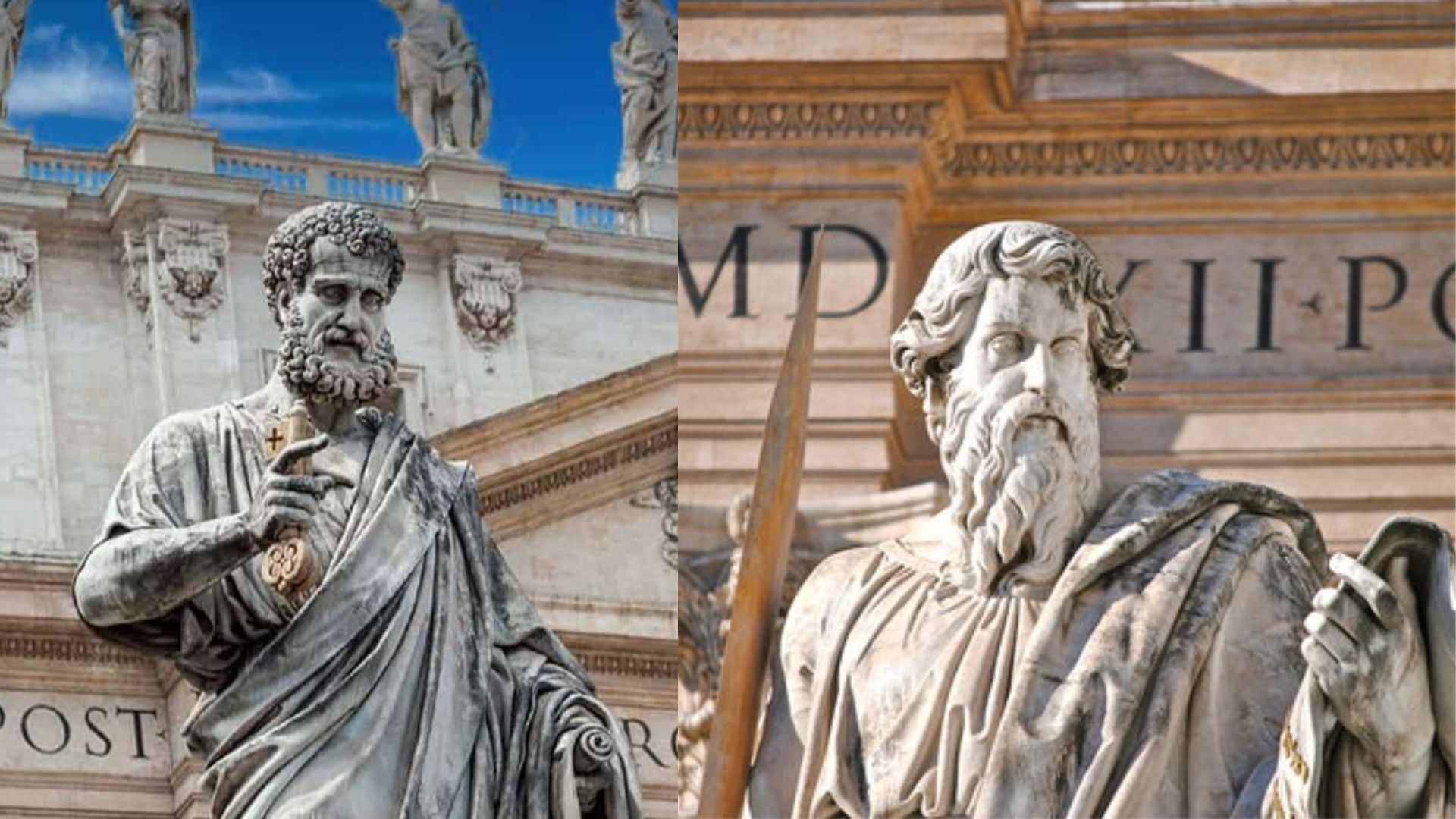Reflection for the 34th Sunday in Ordinary Time 2024
Dear Sisters and Brothers in Christ,
Sisters and Brothers in Christ,
It is one of the great ironies of our faith that we celebrate our Savior with the title of “king,” a role that God warned the Israelites against adopting for themselves in the times of Saul and David. But then as now, we find it hard to resist the way of the world and the perception that the only effective forms of authority are those backed by unilateral control, hierarchy, military force, wealth, or coercion. Our Church is not exempt from these temptations, and despite several centuries living as a fugitive community “underground” as it were, the collision of the Roman Empire with the early Christian communities evolved the role of disciple-leaders into Imperial forms complete with a monarch, princes, feudal bureaucracy, an elite clerical social class, and for centuries, a standing army. What would Jesus say about this, we might wonder?
Of course, there were real implications of this development for the life of the Church, some of them advantageous for the growth of Christianity, but not always so positive for the genuineness of the faith inspired by Jesus, who was poor and humble, and warned against violence of any kind. In fact, Jesus eschewed this way of the world and introduced an evolution in our understanding of how true authority should be exercised.
When Jesus entered Jerusalem for the last time, he rode a donkey rather than a horse to distinguish his kingship from that of the Emperor. He was not averse to exercising power over the demons possessing people, and didn’t hesitate to set boundaries with those who acted contrary to the will of his Father. But his style of authority, which flowed from his authentic experience of his Father’s love, and from his free and willing faithfulness, was never expressed through power over people. Feudal kings took up their power in a way that almost by definition reduced people to servitude. While perhaps this model of governance in terms of domination was a function of the social conventions of the times, it runs completely contrary to the example of Jesus. Rather, Jesus exercised power with and for others as a liberating, dignifying service which he modeled most dramatically through the washing of his disciples’ feet, and then on the cross.

The Good Shepherd (3rd cent. AD) – Catacombs of Priscilla – Rome
The Feast of Christ the King confronts us with this irony, and calls us to discern the manner in which the Gospel both affirms and challenges the ways that we perceive how authority and power are exercised in the Church today. Where we see people invested with roles of formal authority acting with a humble and generous orientation of service toward others, especially those who are disenfranchised from power and resources, we recognize the style of Jesus at work. When we perceive that people in such roles attach to their authority with self-importance, elite privilege, or a sense of exception from the standards they impose on others, it is clear that this is inconsistent with the style of Jesus and a potential threat to the evangelical witness of the Church.
As we situate ourselves today in a Church called to conversion, a Church being invited by the Holy Spirit toward a more and more synodal style, one expression of this conversion is flipping of the “power pyramid,” such that instead of seeing lay people at the bottom, the Pope at the top, we envision the reverse. Pope Francis has suggested that the purpose and function of the entire hierarchy of the Church, and of those in religious congregations, is the service and empowerment of laity to take up their roles and their missions in the world in a “co-responsible” manner.
For more insight into the implications of this synodal style for the proper exercise of authority in the Church, see below.
At the heart of synodality is the recognition that by virtue of baptism, every Christian is anointed “priest, prophet, and king,” i.e., to exercise authority in the style of Jesus for the sake of the Kingdom. The call to synodality underscores Christ’s call for us to reflect on the style and manner in which we each exercise authority and for what purpose. Where am I called to come closer to his way, his gentleness, his humility?
With you on the journey with sibling affection,
David and the Discerning Leadership Team
(The final document of the Synod outlines the appropriate role and function of authorities within the hierarchy of the Church, emphasizing a synodal approach to governance. Here are key points:
1. Nature of Authority: The authority of bishops, the Episcopal College, and the Bishop of Rome is rooted in the hierarchical structure established by Christ, serving both unity and legitimate diversity in the Church (9:2).
2. Consultation and Deliberation: Authorities are bound to consider the results of consultative processes. When making decisions, they should take into account the discernment provided by participatory bodies, reflecting a collaborative spirit rather than simply imposing will.
3. Collective Responsibility: The document advocates for a distribution of tasks and responsibilities among bishops, priests, deacons, and laypersons, promoting co-responsibility and collaboration in ministry. This wider distribution is seen as essential for a dynamic and spiritually sound exercise of ministry (9:8).
4. Participatory Structures: It highlights the importance of institutional structures for participation within the Church, advocating for the inclusion of diverse voices in decision-making processes, including laypeople, women, and marginalized groups (9:8).
5. Clarity in Decision-Making: Clear procedures for decision-making, defining roles and responsibilities, are necessary to ensure effective governance and accountability.
In summary, the document advocates for a collaborative and consultative approach in the exercise of authority within the Church, aiming to enhance unity and effectiveness in service while respecting diversity among its members.)nsultative approach in the exercise of authority within the Church, aiming to enhance unity and effectiveness in service while respecting diversity among its members.)




